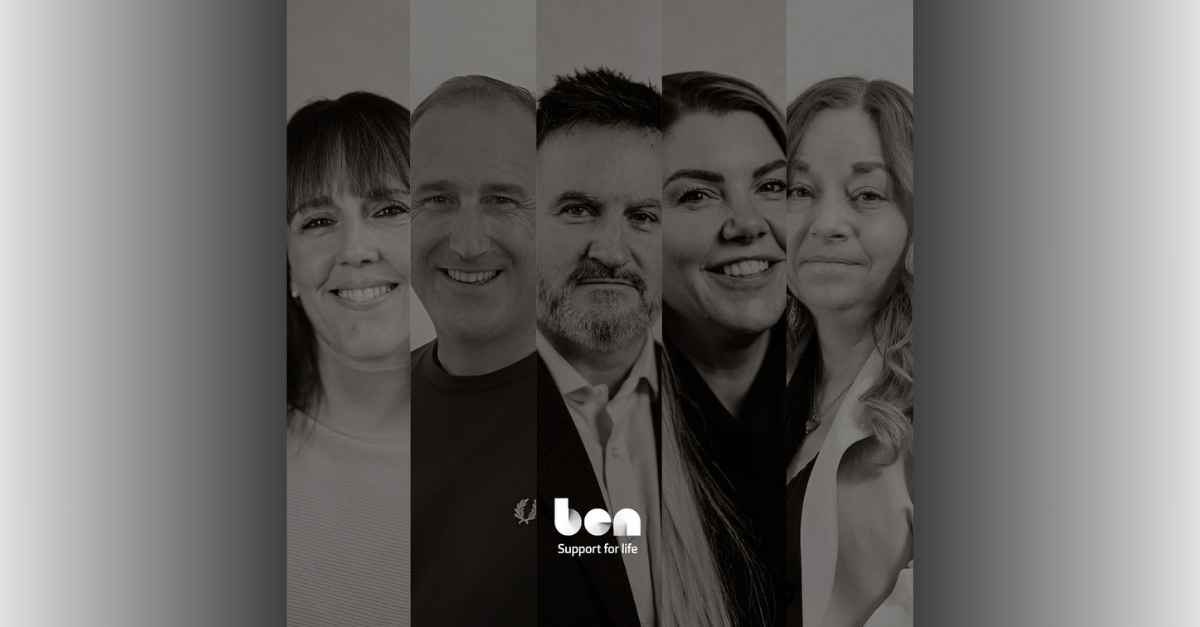A business can be defined by two things – where it is going, and what it is doing to get there.
However, in these transient times neither can be set in stone. Adaptability and flexibility have been among the key buzzwords following Covid-19, and that applies not just to the way businesses work, but also what they’re working towards.
Traditionally, the ability to move with the times has been the preserve of smaller, nimble organisations, those who are lighter on their feet and with fewer moving parts. While that remains true to a certain extent, what the pandemic proved was that even large companies can react quickly when it becomes critical – remote working was introduced within days across multiple motor insurers and has now become the norm.
However, while the threat of the pandemic appears finally to be waning, it has left behind a legacy of change across all industries. This applies to consumer attitudes, business priorities, and best practice. And, as all these evolve, so too must business strategy.
Of course, the motor industry was in the midst of significant change even before Covid-19. What the pandemic has done though is accelerated pre-existing trends and introduced others.
Technology
The most obvious of these is digitalisation and a wider reliance on technology. This is a generic trend across all sectors though, and more specific to the automotive sector has been the fast-tracked integration of artificial intelligence.
In many ways this has been consumer-led. Much like autonomous cars, the technology came before consumer acceptance. However, the pandemic saw consumer attitudes shift 180 degrees and now AI is widely accepted within the claims journey and needs to be part of everyone’s business strategy.
Bill Brower, VP Industry Relations, Solera, said, “Covid was clearly the tipping point for customer adoption of digital services and it’s clear now that those implementing cutting-edge technologies like AI will gain critical customer retention, efficiency, and resilience.”
Solera’s own data found that 52% of repairers and OEMs saw their profitability increase through greater implementation of digital solutions, 50% saw increased staff productivity and 49% reported an improvement in employee efficiency.
Brower said, “The optimism among industry decision-makers to achieve AI objectives is a huge vote of confidence, but more needs to be done to realise its value for stakeholders and customers. There are inevitable barriers in the journey towards full automation, but the message is clear. Now more than ever, organisations must leverage first-class technology partnerships to streamline this transition and maximise the return on AI investments.”
Opportunity
The good news is that the sector appears to be on the right track.
Solera itself is helping to drive uptake and has just unveiled Qapter Intelligent Triage, a new AI-based solution intended to improve the speed and accuracy of triage following first notification of loss. Using machine learning, the solution assesses the severity of damage, guides the handler towards an appropriate repairer or a total loss settlement, and even has measures that can identify a fraudulent claim.
Meanwhile, a report published by Yell, found that the automotive industry is ahead of the game when it comes to AI. Its research found that automotive businesses adopting AI tech save an average of £41,584 per year – well above the cross-industry average of £29,000 per year. This is mainly down to efficiencies in process, with an average of 40 hours per week being saved. That is the equivalent of 2,075 per year.
The Yell research also found that the automotive sector is the most forward-thinking when it comes to AI, with 68% of business leaders expressing confidence in the technology.
Resilience
But if adapting to advances in technology is nothing new, particularly in automotive, businesses have had to factor something else into their strategies following the pandemic – resilience.
Traditionally, a well-managed business meant a lean business, one that had stripped the slack out the system, followed a continuous programme of cost-cutting and efficiency gains, and had introduced practices that enabled it to do more with less.
That is no longer the case, and in today’s unpredictable environment such a strategy can even leave a business fragile.
Of course, efficiency is still paramount, but owners and managers have had to come up with strategies that protect the business in three key areas: its workforce, the threat of catastrophic events (extreme weather, another pandemic), and online.
Habits
Working habits have irrevocably changed in the last few years. Apart from remote and flexible working, which is now expected by many employees, there has also been a change in work-life priorities with many people either leaving their jobs or considering it.
Speaking during an ARC360 webinar in the spring, Edwyn van Rooyen, CEO, T-Cup, revealed that one in two people were thinking about changing their jobs in the next year, while Dean Head of Repair Sector Services, Thatcham Research, said there had been a 25% increase in vacancies across automotive repair sector, with up to 15 in every 100 roles now vacant.
That means that effective recruitment and retention is more critical than ever, and managers now need to actively create a working environment to suit modern workers; if they don’t they risk seeing their long-term strategies unravel due to a lack of skills within the business.
The pandemic and climate change has also heightened awareness around both direct and indirect disruption caused by extreme events. The UK is increasingly subject to storms and flooding, but disruption elsewhere in the world can also have a severe impact on UK businesses: supply chains were already reeling from plant closures in the Far East and the conflict in Ukraine had further hindered supply while affecting businesses in other ways, such as steepling energy prices.
Contingency planning and instilling robust operational practices is now paramount.
Meanwhile, a relatively new but growing consideration is the rising threat of cybercrime. As businesses embrace digitalisation, their vulnerability to hackers and malware increases exponentially but, with challenges in so many other areas of the business, it appears this threat is being largely overlooked.
A recent survey, The State of Cyber Resilience – published by Marsh and Microsoft – found that less that than one in five business leaders felt confident about preventing and managing cyber threat, with many saying that Covid-19 had interrupted risk protection strategies.
Sustainability
Perhaps the greatest influence on business strategy and practice though, is the environmental agenda. This is both a short and long-term concern for businesses, and their strategies going forward simply must have sustainability as a core value or they will not be viable – environmentally-conscious customers will turn away from them and work providers will cease working with them to protect their own sustainability scores.
For some, climate change and the impact it’s having on the consumer is altering their long-term strategies completely; consider how vehicle manufacturers are increasingly turning themselves from ‘car makers’ to ‘mobility solutions providers’. While other businesses have emerged in the sector for whom developing and helping others develop sustainable practices is their entire business strategy.
It’s undeniable though that wherever a company is on the supply chain, what constitutes best practice is changing.
Stephen Long, Director of Operations, Covea, said, “Like many others, Covea is following a green parts programme which supports sustainability and helps to reduce our carbon footprint. In addition, we support a repair versus replace ethos where appropriate, by ensuring fair repair times and a partnership approach to resolving issues together.
“We also carefully work with our supply chain to ensure audited practices in the dismantling and recycling of parts along with a proven method of offering quality assured replacement parts back into the repair cycle.”
Planning
None of these innovations happen by accident, and changing course midstream can be daunting, but the commercial scrapheap is piled high with organisations that either stuck with business strategies that no longer reflected society, or failed to change their operating practices in line with new technologies and best practice.
Blockbusters is perhaps the most notorious example of what can happen when a business fails to adapt (it turned down the opportunity to buy Netflix for $50m in 2000), although it’s not alone – remember Kodak, Nokia, Yahoo, Blackberry, HMV, and MySpace?
One thing all these famous brands had in common was that they operated in a place where technology meets customer behaviour. This left them especially vulnerable to change from both sides, and the same is true of the automotive industry.
Speaking during a recent ARC360 webinar, Neil Marcus, Marketing Director, Selsia Vehicle Accident Centres, said, “There is a perfect storm of things happening that we can’t control at the moment; people are working from home, there is a shortage of skills, energy costs and labour rates are rising.
“Covid-19 taught us that nothing stays the same and you have to adapt. The smaller the business the easier it is, but you must be prepared to do it. There is no shame in changing direction, but you need to know where you want to go and how you are going to get there.”
For many, the pandemic has provided an opportunity to reboot, to rethink their strategies and start again. That opportunity still exists, but to make the most of it owners need to adopt a ‘start-up’ mindset, the sort of attitude that helped them get their businesses off the ground in the first place.






















